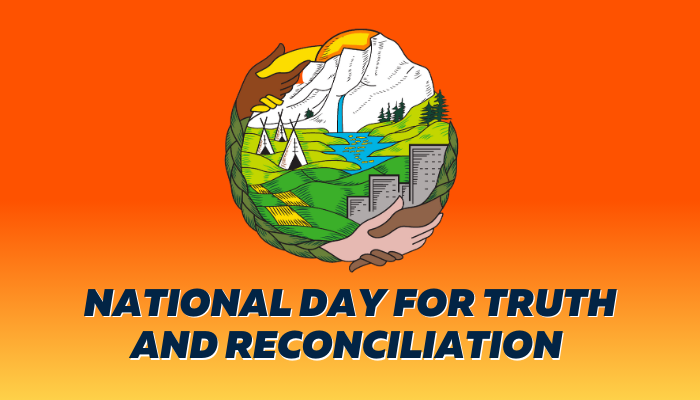In honour of National Day for Truth and Reconciliation, we want to reflect on how we grieve, how we heal, and how we create change.
This Saturday, we will remember the children who perished at residential schools and honour Survivors and their families.
The pain and sorrow caused by residential schools is ongoing. The devastating impact to lives and the destruction of cultures did not end with the closing of the last residential school or with the conclusion of the Truth and Reconciliation Commission. For everyone experiencing this pain and loss we express our deepest sympathies and remorse.
We need to do more than grieve, we need to use this day to recommit ourselves, as individuals and as a union to create change so that everyone can heal. As a member of HSAA, you are already a part of positive change and there is more you can do through your union.
One of our core values as a union is to champion diversity, equity and inclusion. HSAA members have recently passed a resolution reaffirming our commitment to advocate for the implementation of the Truth and Reconciliation Commission of Canada Calls to Action – specifically actions relating to health care (18-24). Advancing Truth & Reconciliation in our union and workplaces is part of that commitment to advancing a more just and equitable society.
First among the health calls to action is the need for “governments to acknowledge that the current state of Aboriginal health in Canada is a direct result of previous Canadian government policies, including residential schools, and to recognize and implement the health-care rights of Aboriginal people as identified in international law, constitutional law, and under the Treaties.”
This action speaks to the need to confront the systemic racism that exists in how health care is provided to address the unacceptable health disparities faced by First Nations, Inuit and Métis Peoples.
While Alberta has made an official acknowledgment that the current state of Indigenous health is a direct result of previous government policies, action to address this dire situation has been insufficient. HSAA will continue to advocate for equal access to public health-care services for Indigenous communities.
We also support these calls to action because we are the health-care professionals people rely on and many of the services we are involved with have been identified as perpetuating systemic racism when treating Indigenous patients. This is due to both conscious and unconscious biases, and we all have a role in reversing it in our workplaces.
HSAA has recently developed an Unconscious Bias Workshop to help members address the impacts of unconscious bias in the workplace and our Union. Everyone can be susceptible to unconscious bias, but we must learn to recognize it and see how it influences unintentional behaviours. That awareness is what allows us to begin committing to meaningful change and helps create a health-care system and workplaces that are inclusive and safe for all.
We are also committed to ongoing action by offering members educational opportunities with Blue Quills University. Blue Quills, a former residential school, teaches the history and legacy of the residential school system, from which we gain a better understanding of intergenerational trauma and our role in reconciliation through participation.
Reconciliation is about choosing the kind of society we want to live in – how we want to treat each other. We must go beyond recognizing the abuses inflicted by the residential school system, acknowledge the ongoing impact of colonialism, and actively work to eliminate it.
Only with all of us working together will we be able to end the harm caused by residential schools and heal through reconciliation.
In solidarity,
| Mike Parker, President |
Leanne Alfaro, Vice-President |
